In the galaxy of 1960s New York nightclubs, the Copacabana shone brightest.
Getting in wasn’t easy. Celebrities, socialites and sports stars all jockeyed for a coveted table amid the bustle and faux palm trees. But one patron never had a problem.
Asked where he sat when he went there, John (Sonny) Franzese smiled and said, “Wherever I wanted.”
Franzese, then a Colombo family capo, frequented all the top clubs. But it was the Copacabana, with its roster of glittering acts and the Copa Girls dance line, where he felt most at home. If the club was filled, Franzese would go to the back door and tell workers to set a table on the stage, said his friend, Tony Napoli, whose father was a Genovese capo.
Franzese, who died on Feb. 23 at age 103, recalled those nights recently as part of a series of interviews with Newsday over the past two years. The conversations became the foundation of a deep look into his life, the Mafia on Long Island and beyond in the golden age of the mob, and how the arc of justice played itself out.
“People would come there to see me, too,” he said over pasta e fagioli in his nursing home. “You thought I was the star sometimes, you know.”
In the ’60s, in New York City and on Long Island, he was.
High times
While recovering from a heart attack in May 1962, Meyer Lansky, the mob’s numbers wizard, was watching a TV show on organized crime in a Manhattan hotel room. After a panelist commented on the Mafia’s size and power, Lansky turned to his wife and, in words surreptitiously recorded by FBI agents, remarked, “We’re bigger than U.S. Steel.”
His wry observation was apt.
The Mafia was riding high on Long Island, in New York City and nationwide. In addition to earning millions in traditional rackets, it steadily made inroads into government, legitimate businesses, entertainment and unions. Its grip on New York, Franzese said, was “unbelievable.”
He looked for any business opening and made a niche for himself in a range of pop culture. Money poured in from performers as disparate as the Isley Brothers, the Lovin’ Spoonful and Linda Lovelace — both on peep show loops and in her movie debut in “Deep Throat.”
Franzese’s activities took him out of the shadows and practically pushed him in the face of prosecutors still mindful of the dozen cases they brought against him that, in toto, produced a single $50 fine on an incidental gambling charge back in 1943.
Unlike his mob confederates, who hid their faces from news photographers during arrests, Franzese looked directly at cameras. When he was out and about, he even told companions to smile for news photographers.
“All of a sudden, I started to become more famous every day, and I never knew why,” he reflected in a Newsday interview. “People just liked me. You know what I mean? I was just like a big hit with them.”
Franzese was always nattily dressed and knew that reporters would describe his wardrobe in detail, cashmere overcoats included. “In those days,” he said, “cashmere was expensive.”
“I knew how to buy clothes, more than a lot of guys did.”
People were paying attention.
Robert F. Kennedy, the nation’s new attorney general, declared war on the mob in 1961. Two years later, Genovese soldier Joe Valachi became the first Mafiosi to break omertà, the code of silence. In televised congressional hearings, he described its structure, rackets, rituals and coldblooded violence, and he named dozens of key players.
Valachi noted Franzese’s rise, telling then-Nassau District Attorney William Cahn in a private interview, “He has a hand in everything. He’s a real big man in gambling,” a Newsday story related.
David Shapiro, a former FBI agent who teaches at the John Jay College of Criminal Justice, said that while such bravado could help business by burnishing an image of invincibility, it also antagonizes law enforcement.
“They look at a guy like that and say, ‘How does he live like that? Where does he get his money?’”
When they did, they found that Franzese had built an expansive criminal empire, one they set out to crush.
Doing business
On Long Island, thousands of residents engaged, wittingly or not, with his business interests. In addition to controlling illegal gambling, he had hidden interests in restaurants, clubs, car dealerships and other businesses. In one particularly audacious instance, mobsters tied to Franzese were caught trying to organize 7,000 barbers into a sham union that would have yielded millions in dues to the mob.
But it was within the cultural caldron of 1960s Manhattan where his reach was most striking, and not just because, by his account, he dated Marilyn Monroe and Jayne Mansfield. It extended from the peep shows of Times Square to the Top 40 rock of Tin Pan Alley to the Rat Pack glamour of the Copa and far beyond to entertainment venues across the country.
He had a secret interest in a booking agency run by Norby Walters, a longtime club owner and talent agent who had a full roster of run-ins with the law. The agency represented many of the top African American stars of the day, Dionne Warwick included. Franzese’s friends say one way or another he boosted such artists as Sam Cooke and Sammy Davis Jr. and such celebrities of the moment as Van McCoy, who sang “Do the Hustle,” and Johnny Nash, who hit the charts with “I Can See Clearly Now.”
He had the sway, by his telling, to boost the career of a group already topping the charts — The Supremes.
The story goes like this: He persuaded Jules Podell, the Copacabana’s manager and part owner, to book them in the club, which had a spotty history of featuring black performers. Franzese said he felt the group’s appeal was universal.
“‘Look,’ I said, ‘Check it out.’ So he checked it out.”
What followed was a stunningly successful run, which Franzese said paid $1,500 a week, followed by a live album and booking bonanza for other Motown groups.
The record industry
Franzese lent money to a production company run by Phil Steinberg and Hy Mizrahi, founders of Kama Sutra and Buddah Records, two hot independent labels, according to Artie Ripp, their former partner. When they fell behind on payments, Franzese became a silent partner in Kama Sutra, which produced such blockbusters as the Lovin’ Spoonful’s “Summer in the City,” Jay and the Americans’ “Come a Little Bit Closer” and — from its ample bubble-gum catalog — “Yummy, Yummy, Yummy,” by a group called the Ohio Express.
The record business had long been a mobster playground, with hard-to-trace money and a half dozen ways to make it. “I’ll be honest with you, if I don’t get pinched, if I don’t get locked up, I don’t know how much money I’d be worth, you know?” Franzese said while reflecting on his music business days.
The business was “full of gangsters,” Ripp said, and they fed off exploitative contracts signed by naive teenage performers, stolen song credits, mobbed-up jukebox companies and record-pressing plants, and pay-for-play payoffs to disc jockeys.
“Sonny at least was upfront about where he was at, what his business interests were, what his responsibilities were to the organization that he was part of,” he said.
One negotiating tactic in monetary disputes involved hanging performers and songwriters out a window when they demanded the royalties their contracts called for.
As Ripp explained it from the management perspective, “Somebody says, ‘Look, you got two choices: One, OK, your signature’s on a piece of paper. Two, your face is on the sidewalk below.
“Ping! OK, then you open up the window, and then you hang the person outside the window.”
Franzese recalled using the maneuver to the desired effect.
Morris Levy, a notorious Genovese crime family associate and music industry powerhouse, had gotten into some serious financial trouble. He needed a hit at his label, Roulette Records, and he thought he had one in a spoof of the Shangri Las’ “Leader of the Pack.” It was “Leader of the Laundromat” by the Detergents.
It included the refrain:
“My folks were always putting her down (down, down)
“Because her laundry always came back brown (brown, brown).”
The song cleaned up, rising to No. 19 on the Billboard charts. But when the Detergents asked Levy for their royalties, he told them all the records had been sent back unsold, said Ron Dante, a Detergent.
“And he actually said to us, ‘And you can check the books. I keep two sets anyway,’” Dante recalled.
Keenly aware of Levy’s connections, the Detergents backed off, but the group’s songwriter and creator, Paul Vance, stayed behind in Levy’s Brill Building office.
There, too, was Franzese, along with some associates.
Using the mob vernacular for someone associated with a Mafia family, Franzese said Levy “was a friend of mine,” even though he didn’t like him.
“He robbed everybody,” he said. But mob code required that he help him.
Vance and Levy got into a fistfight, Vance, 90, said in a recent interview, and he knocked Levy down. Suddenly, Franzese and his fellow Mafiosi jumped up, “The window, the window, you dumb bastard!”
“I hung him out a window,” Franzese said, telling him that if he didn’t give up the royalties, “I’d drop him right there.”
In very short order, Vance said, “You got it,” Franzese said.
“It was amazing,” Vance recalled, and afterward, as often happens in business, antagonists became friends. Franzese “helped me any way he could,” Vance said. When asked how, he replied, “With force.”
Franzese was philosophical about the music industry. “Hey, listen, you had to make money,” he said. “It was tough.” Speaking of his “friends,” he said, “They were all crooks.”
The lore about hanging people out windows by their legs lives on in the music business, where despite the denials of Vanilla Ice, the story is repeatedly told of rap impresario Suge Knight hanging him off a 15th floor balcony in a royalty dispute.
Peep shows and porn
Other parts of pop culture were on fire — the seamiest part included.
In 1964, a landmark U.S. Supreme Court decision held that all but the most extreme pornography was protected under the First Amendment. Massage parlors and peep shows — in which sex films or live sex acts were on display — spread through Times Square.
In the middle of it all, in paisley shirts, bell-bottoms and a walrus mustache, was a now-deceased entrepreneur from Lawrence named Marty Hodas. Known as “the King of the Peeps,” his storefront empire was fueled by an endless stream of quarters. In one year, according to testimony before the State Investigation Commission, one of his peep emporiums brought in $1.52 million, the equivalent of $10.7 million today.
That kind of money caught Franzese’s attention, according to police sources quoted at the time. In an interview, Hodas’ daughter, Romola, recalled the attention as unwanted. “My father used to come home, and he used to pace back and forth,” she said, as he repeated, “They’re not gonna get a [expletive] penny from me.”
She remembers kidnapping attempts and shots fired at the family’s home but couldn’t say who was behind them.
The commission later determined that Franzese formed a partnership with Hodas, after he negotiated a truce with rival peep proprietors.
When police raided Hodas’ office in 1972, they found a note that said: “John gets $4,000 each week until $100,000 is received. Thereafter, he receives $1,000 for each week for the rest of the year. All new stores Marty puts up 50 percent cash with John and we are partners. Marty assumes all responsibility for running the stores.”
Police identified “John” as Franzese, although Hodas denied knowing him.
Three years later, Hodas was charged with tax evasion, eventually convicted and sentenced to a year in jail, despite his novel defense that he accurately reported his taxable income after deducting payoffs of roughly $100,000 a year to organized crime.
One actress in Hodas’ hard-core film loops was Linda Lovelace, who would become the star of “Deep Throat,” a movie that was stunningly lucrative for Franzese, who helped finance it, his sons said. Conservative estimates of its gross run into the tens of millions.
Copa nights
Less than a mile from the World Theater, where “Deep Throat” premiered, stood The Copacabana, silently owned by Frank Costello, head of what was then known as the Luciano crime family, and Podell. Costello, known as “the prime minister of organized crime,” split time between Central Park West and Sands Point.
The club drew the era’s most famous performers, including Rat Pack stars like Davis, Dean Martin and, above all, Frank Sinatra. Franzese knew them all.
“All the top entertainers in the country, in the world, they all wanted to work there,” he said.
Franzese’s wife, Tina, easily held her own in that environment. Petite, movie-star attractive and always beautifully dressed, she was comfortable with celebrities.
Franzese mingled easily with them as well. Singer Bobby Darin, who died at just 37 in 1973 after open heart surgery, was a favorite. “He was very good, a nice kid,” he recalled.
Darin broke Copa attendance records, and Franzese remembers the tense rivalry between Darin and Sinatra.
“Sinatra had a voice that was unbelievable, but this kid had a voice that Sinatra couldn’t reach the notes that he reached. Sinatra could never sing ‘Splish, Splash,’ ‘Mack the Knife.’ Bobby Darin — a voice, he coulda sang anything,” he said.
“He hated Sinatra, and Sinatra hated him because he knew he was a threat to him.”
Franzese and Sinatra themselves had an uneasy relationship, as each jousted to assert dominance, in Franzese’s recollection.
“He wanted to be catered to all the time,” he said. “See, I used to play it right. When I used to see him, I made out [like] I don’t see him. I did it on spite. He used to come back to me and talk loud so I could hear him. I wouldn’t turn around.”
The women
Beautiful and famous women — among them Monroe, Mansfield and the ’50s TV bombshell Dagmar — flocked to Franzese. That’s not just according to his account.
“He was a magnet,” said Tommy Gallagher, who ran a renowned boxing gym in Brooklyn where Franzese would go to unwind.
To this day, Franzese professes not to know what women saw in him.
“They [would] come up to me, actually pick me up,” he said. “They hit on me like I was Rudolph Valentino. I couldn’t believe it myself at times.
“I was in demand, believe me,” he said. “I never know why. I never thought I was good looking. I never really did.”
That memory led to the only instance in five lengthy interviews where Franzese expressed embarrassment.
On May 19, 1962, in an iconic moment, Marilyn Monroe sashayed onto the stage of Madison Square Garden in a skintight, rhinestone-studded dress and sang a breathy “Happy Birthday” to President John F. Kennedy.
Down in the darkened arena, a different personal drama was playing out, Franzese said. Monroe’s ex-husband, Joe DiMaggio, was trying to confront Franzese about an affair he had with her.
“He was chasing me all over the place, he wanted to talk to me,” Franzese recalled. “I didn’t want to talk to him. I was ashamed. What can I tell him? You know what I mean? So I ran away, I wouldn’t talk to him.
“I liked Joe DiMaggio. He was my hero.”
At home
Celebrity and after-hours gallivanting are seldom a mobster’s friends. Law enforcement takes notice. Fellow mobsters get jealous. And family members get hurt.
At home, Franzese would explain away his activities with lies, his son John Jr. said, but Tina was not fooled.
Their arguments were frequent and heated, according to an FBI informant quoted in a 1962 memo.
One, over his affairs, was particularly intense: “On 3/20/62, the informant advised that Franzese and his wife had a very heated argument and this pertained to Franzese allegedly dating other women. The informant was unable to identify women with whom Franzese was allegedly going with nor was he able to substantiate whether this was a valid charge by Mrs. Franzese.”
John Jr., the youngest son, witnessed many of her rages. Sometimes, she would scream at Franzese, “I know who you really are!”
During one argument, Franzese slapped her, according to notes of FBI electronic surveillance.
Tina fought with anyone she thought had wronged her, Franzese said.
“I never figured she’d die,” Franzese said. “I figured the devil didn’t want her and God didn’t want her. She was a strong-headed woman.”
Often, the children bore the brunt of it. Both Michael and John remember her beating Michael with an ashtray and a guitar. She and her daughter Gia once fell to the floor hitting one another.
Family members have trouble understanding Tina’s violent rages, but Ripp said he thinks he does.
“Look, so a woman finds that she is disrespected in some way or another and the dream life that she expected, whatever that might be, turns out not to be the dream life,” he said. “Now what does she do with all that anger? What does she do with all that disappointment? Oh, well, the kids wind up having to bear some of that.”
Closing in
Outside the house, meanwhile, the footsteps of interested lawmen got closer, and Franzese knew it.
He became adept at evading surveillance. His friend Ori Spado recalled that when they met for dinner at a restaurant in Great Neck, Franzese often would excuse himself and go to the men’s room for an unusually long time. Spado thought Franzese had some kind of health issue, until he finally realized that his friend had been slipping out the men’s room window so he could meet privately with associates at the other end of the shopping center.
In 1963, Franzese shook off two sets of charges, consorting with known criminals and attempted extortion, winning an acquittal and a dismissal.
In 1964, a judge ordered him to appear before a Brooklyn grand jury investigating payoffs to police and telephone company employees, who could tip off mobsters about planned raids. Because grand jury testimony is not public, what he said is not known, but he was not indicted.
The following summer, the Suffolk district attorney convened a grand jury to investigate the underworld’s ties to county Republicans. These, articles at the time reported, included attempts to influence judges and prosecutors handling gambling cases.
A candidate for Suffolk district attorney that year, Charles T. Matthews, publicly accused Franzese of trying to influence the race. He said he and his associate, Felice (Philly) Vizzari, of Deer Park, “are determined to elect a candidate who will not interfere with their desire to build a Cosa Nostra empire in Suffolk County.”
Matthews told the grand jury that he got his information from Nassau district attorney’s office intelligence reports. The grand jury found that politicians mingled with mobsters but concluded there was insufficient evidence for an indictment.
Through it all, Franzese maintained his record as a courtroom untouchable.
But, after returning from another night out, he found himself in an unsettling conversation.
“As I’m coming to my house, the garbage guys tell me, ‘Sonny — Mr. Franzese — make like you’re talking to us, that you find that there’s something wrong, an argument, because we’re going to tell you something,’” he recalled. “And he’s telling me, ‘The FBI grabs us every morning, after we leave your house. They take all your garbage. We’ve got to separate your garbage and give it to them.’”
“Dumpster diving,” or looking through garbage, is a standard investigative technique.
At first, Franzese said, he was confused about why this kind surveillance was starting up just then.
Then, it hit him: Someone had given him up — “One of them motherless guys,” he said, “that wanted to be like me, but he couldn’t.”



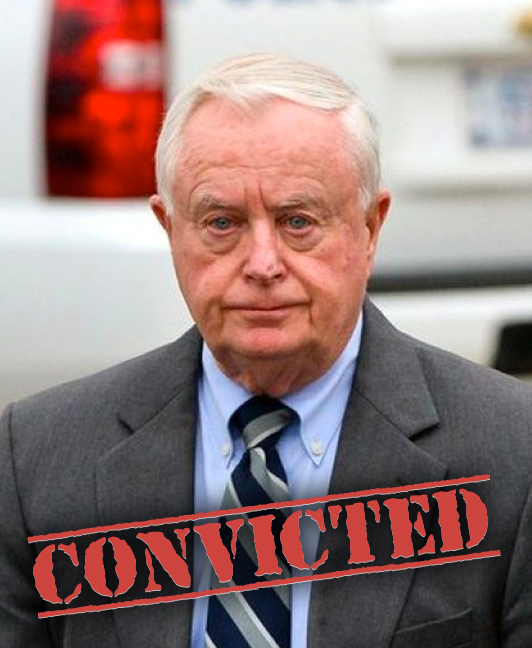

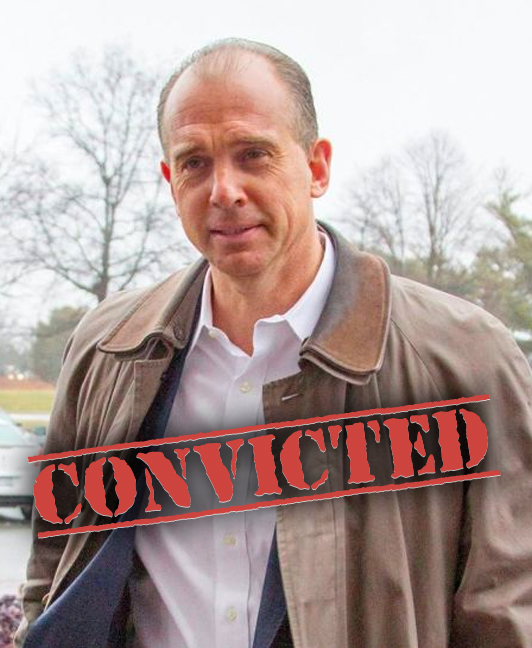
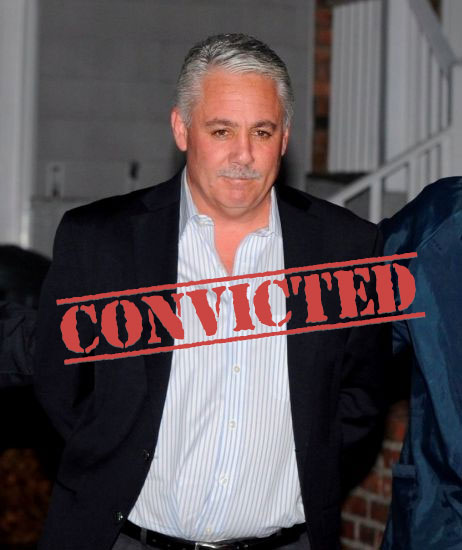
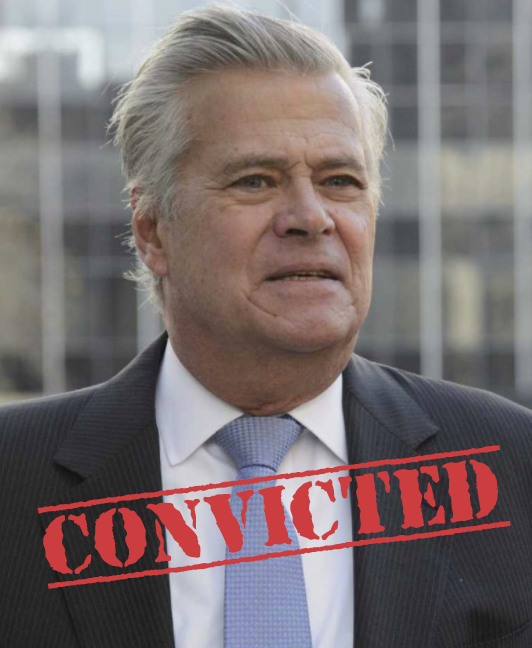
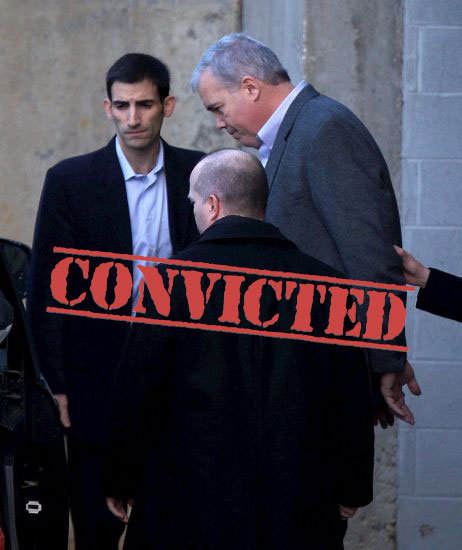
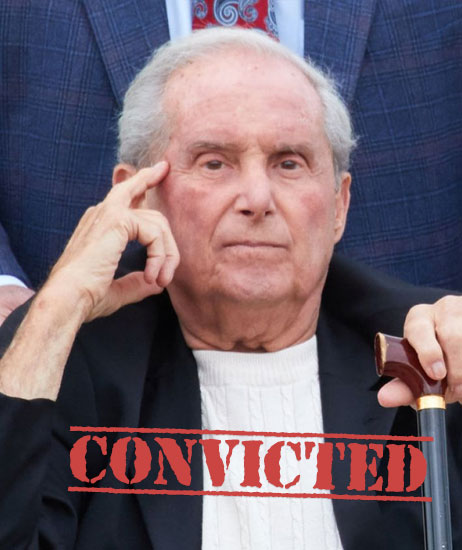
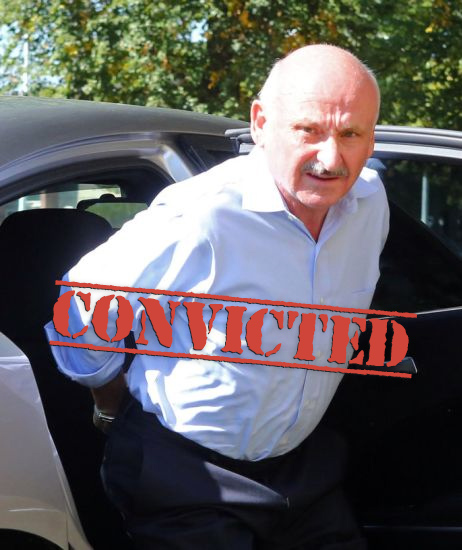
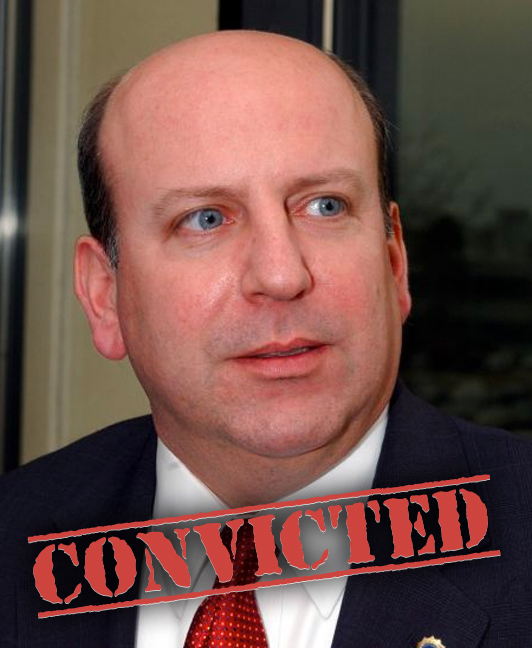

 I can help
I can help I need help
I need help